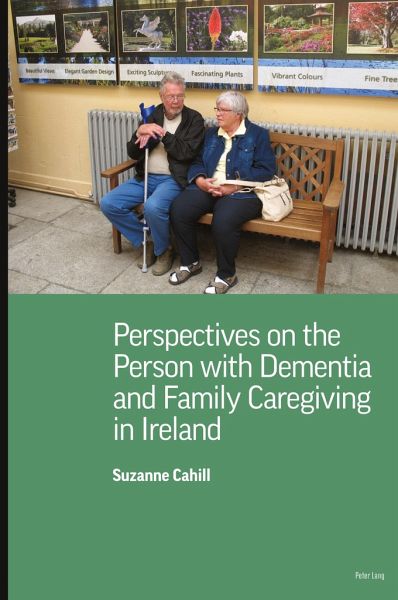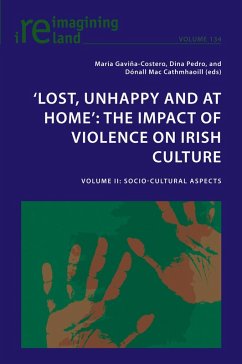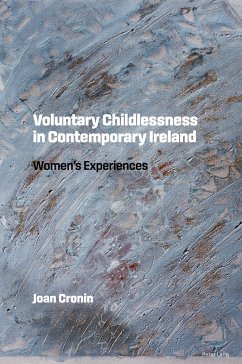
Perspectives on the Person with Dementia and Family Caregiving in Ireland
Versandkostenfrei!
Versandfertig in 6-10 Tagen
26,55 €
inkl. MwSt.
Weitere Ausgaben:

PAYBACK Punkte
0 °P sammeln!
This book is all about dementia in Ireland and what has and has not been happening in a country where dementia has been a taboo topic for so long. In particular it examines the dementia landscape since late 2014, following the launch of Ireland's first National Dementia Strategy. A lot has happened in Ireland since that time but a lot more needs to happen for people to live well with dementia and have their human rights upheld. There are an estimated 55,000 Irish people living with dementia and these figures are set to triple by 2050. Although topics explored in the book,such as obtaining a di...
This book is all about dementia in Ireland and what has and has not been happening in a country where dementia has been a taboo topic for so long. In particular it examines the dementia landscape since late 2014, following the launch of Ireland's first National Dementia Strategy. A lot has happened in Ireland since that time but a lot more needs to happen for people to live well with dementia and have their human rights upheld. There are an estimated 55,000 Irish people living with dementia and these figures are set to triple by 2050. Although topics explored in the book,such as obtaining a diagnosis, accessing home care services and moving from home into a nursing home relate to Ireland, they are discussed against the backdrop of policy, practice and research developments in dementia in other parts of the world. In this way the book provides the reader with a wealth of information including research evidence, best practice guidelines and international expertise. The book hasbeen dedicated to Mnánah 'Éireann, in recognition of the hard physical and emotional work, caregivers,mostly women do behind closed doors. Throughout the book, an appeal is made for more state support to be given to these formal and informal caregivers.














